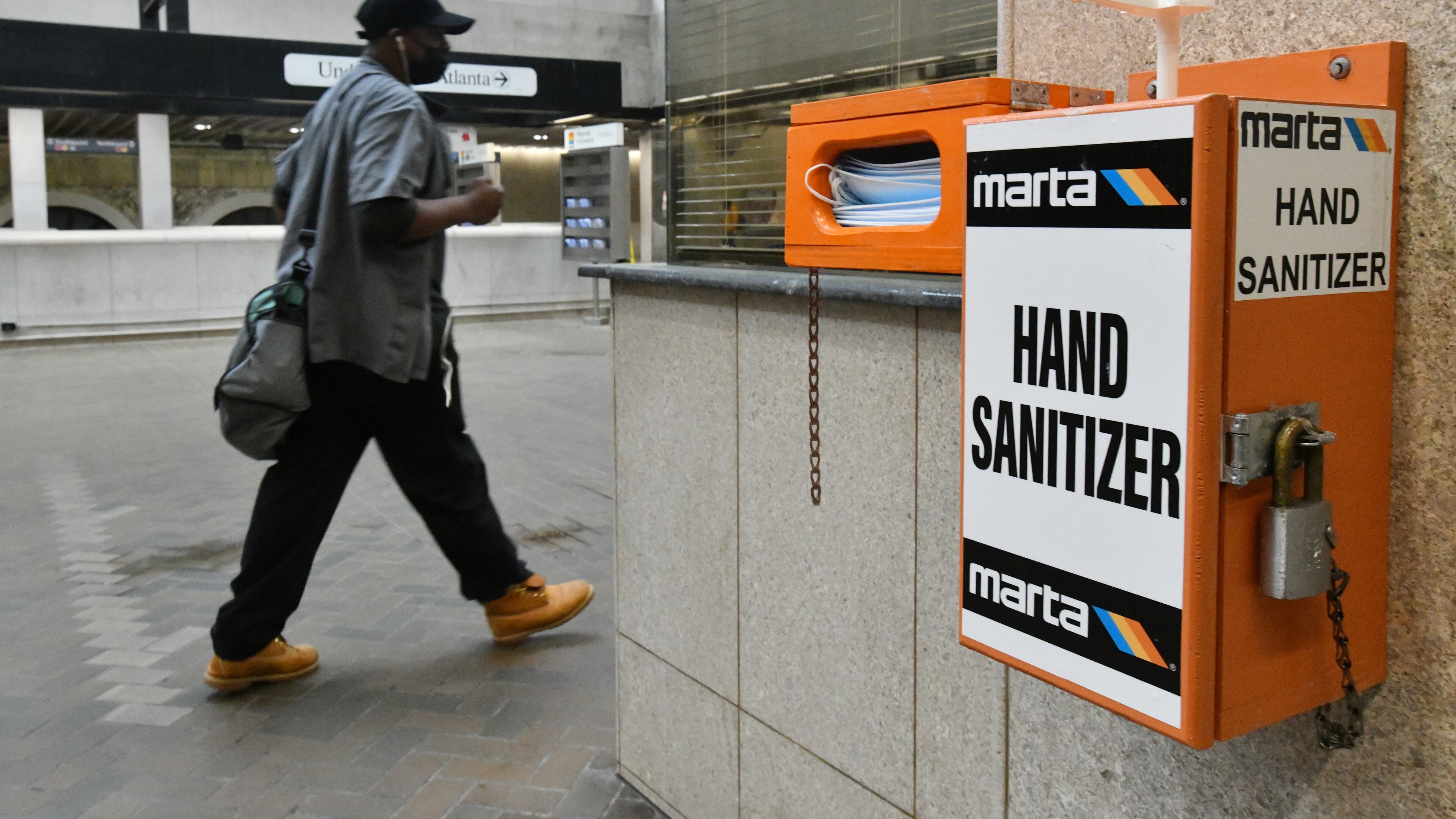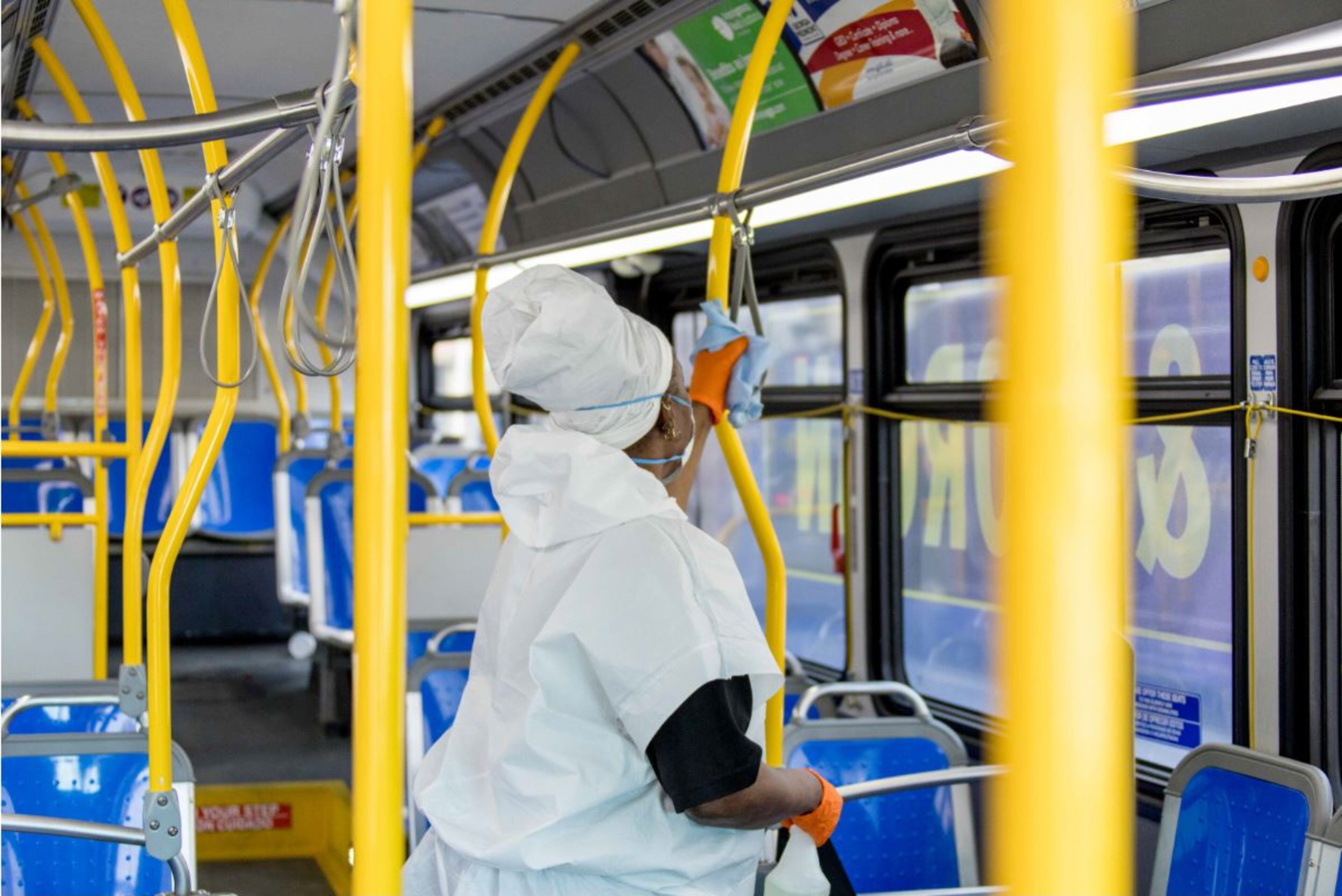COVID-19 aid keeps metro Atlanta transit agencies afloat

Hundreds of millions of dollars in federal aid have helped sustain metro Atlanta transit service through the coronavirus pandemic, and more aid is on the way.
Two COVID-19 relief bills approved in 2020 provided more than $400 million to shore up operations at local transit agencies. Most of the money went to MARTA, the region’s largest transit agency. But aid also supported bus service from Buford to Douglasville and has allowed transit agencies to take precautions to keep passengers and employees safe during the pandemic.
“It’s been a godsend,” Douglas County Transportation Director Miguel Valentin said. “We could not have come up with the funding to do that on our own.”
Now a third round of aid is on the way, thanks to a $1.9 trillion COVID-19 relief package that Congress approved this month. And though details have not been released, it’s expected to provide a $300 million boost to transit service across metro Atlanta.
The money has come in handy. Local transit agencies saw passenger revenue plummet as schools and businesses closed amid the pandemic and residents sheltered at home. Federal data shows the number of passenger trips on MARTA trains and buses fell more than 50% in 2020.
Ridership on Cobb and Gwinnett county buses fell 40%. Other agencies also saw steep declines.

MARTA stopped collecting bus fares for months to limit contact between passengers and drivers. Sales taxes — another key source of revenue — also fell.
But with many essential workers dependent on public transportation, agencies sought to maintain as much service as possible. And expenses rose as agencies stepped up cleaning of buses and trains to protect passengers, bought protective equipment for employees and provided hazard pay to sustain their workforce.
“We were trying to keep the system running and keep the passengers and employees safe,” said David Tucker, Gwinnett’s deputy transportation director.
The federal aid helped. MARTA used $83 million to cover coronavirus-related losses in the fiscal year that ended in June, plus an additional $150 million this year.
MARTA suspended most of its bus routes last spring and increased service elsewhere. That allowed the agency to spread out passengers on buses on the remaining routes.
The move sparked plenty of criticism from passengers served by the suspended routes, and MARTA will restore all bus routes by April 24.
Colleen Kiernan, MARTA’s senior director of government and community affairs, said the service reductions would have been worse without federal aid.
“I think we would have had to make even tougher decisions than we made,” she said.

MARTA received about $332 million from the first two rounds of federal aid — a significant windfall for an agency that spends $558 million a year on operations. The aid is expected to help cover MARTA operations through 2025.
Other agencies also benefited. The state’s Xpress bus service ($25.7 million) and transit services in Gwinnett ($19.8 million) and Cobb ($18 million) counties received sizable allotments. Cherokee, Douglas and Henry counties also were among the beneficiaries.
The money covered basic operating costs, as well as protective equipment, cleaning and other pandemic costs. Gwinnett, for example, used some of the money to launch a “touchless” fare payment system.
The specifics of the new round of aid have not been released. But MARTA estimates it will receive an additional $284 million.
Despite the aid, local transit agencies face an uncertain future. The pandemic has shown many businesses that they can get by with less office space, and more people are working from home. That trend may continue — reducing demand for transit services that were already seeing a long-term decline in ridership.
But the Biden administration supports more transit funding. And local officials say many metro Atlanta residents will continue to depend on public transportation to get to jobs and other destinations.
“The pandemic clearly demonstrated that transit provides an essential service that is critical to a great number of people throughout the region,” said Jonathan Ravenelle, transit funding director for the Atlanta-Region Transit Link Authority.

